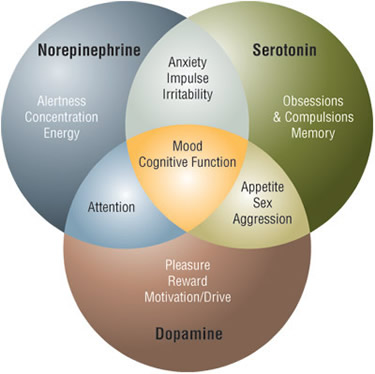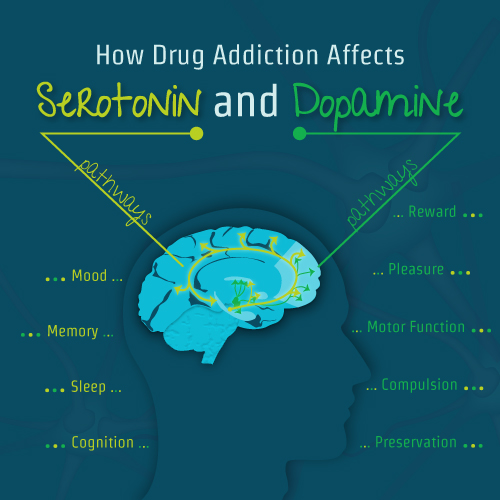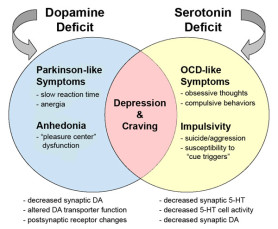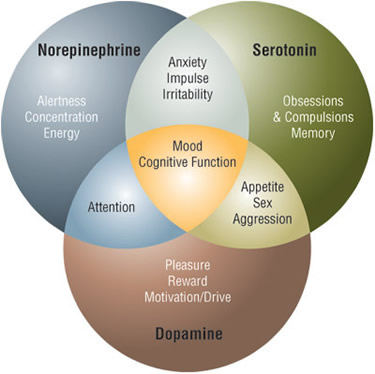Neurotransmitter Restorations (NTR)

Neurotransmitter Restorations (NTR) impacts. The joy that comes with is overwhelming
Neurotransmitter Restorations (NTR): Addiction Recovery using Intravenous NAD & amino acids
The first step in addiction recovery is a functional medical investigation targeting the conditions in the body that facilitate fatigue, anxiety, depression, reduced pain tolerance, poor focus and the likes further demanding the neurotransmitter restorations. These common underlying conditions include food sensitivities, gluten intolerance, adrenal and thyroid imbalances, mal-absorption, neurotransmitter deficiency and NAD deficiency. Since these issues are treatable, normally with nutritional supplements and diet, the patient receives intravenous NAD and amino acids based in individually designed protocols for a 10 day period of time. The IV NAD and amino acids improve brain function based on higher levels of cellular energy production along with increased neurotransmitters, such as serotonin. There could be some withdrawal symptoms for a period of two or three days which is easily manageable and so should not worry you much. After three to five days as withdrawal symptoms disappear, craving subsides and clarity of thinking is restored.
Having been in this discipline for over two decades, doctor Dalal Akoury, MD, President, and founder of AWAREmed health and wellness resource center reiterates that, it should be noted that this treatment is not a substitute for recovery, but it is the beginning of the process of healing. The moment the brain and body are functioning better, the patient has the energy, clarity and focus on engaging in the recovery process. The patient will be able to understand the reasons for compulsive behavior and with better health and motivation they can stop compulsive behaviors and make informed choices that are self-supportive rather than self-destructive.
Neurotransmitter Restorations (NTR): Detoxifying patients professionally
Some studies done in the past five decades reveals the efficacy and safety of IV NAD in detoxifying patients from alcohol, opiates, tranquilizers, and stimulants. Like the early studies, our experience with the protocol over the past five years substantiates its benefits in greatly reducing withdrawal symptoms, as well as reducing, and often eliminating the cravings. And at AWAREmed Health and Wellness Resource Center under Doctor Akoury’s upon scheduling an appointment with doctor Akoury, you will be handled professionally with the state of the art types of equipment and tailor-made programs designed to individual, family and group therapy. Patients are provided with continued integrative care for their underlying medical problems, which helps them to timely feel better physically and mentally. This way they are more likely to continue healing psychologically, emotionally, socially and spiritually. Depending on a case by case at least two-year commitment to aftercare treatment is critical because the underlying psychological issues which often lead to substance abuse must be resolved for long lasting recovery.
Neurotransmitter Restorations (NTR): Addiction Recovery using Intravenous NAD & amino acids







